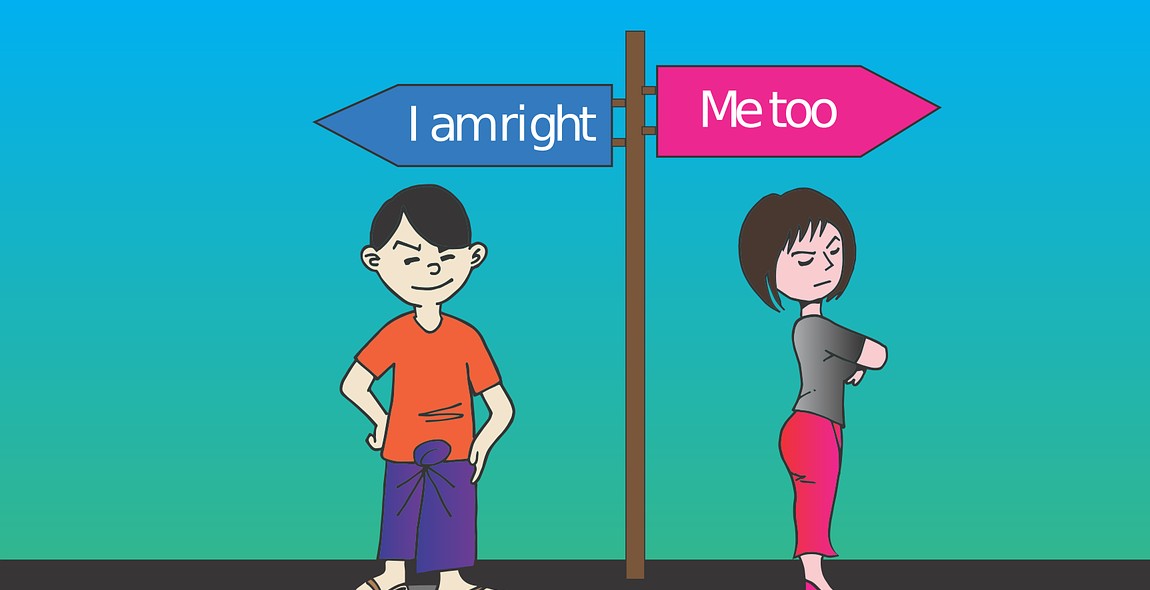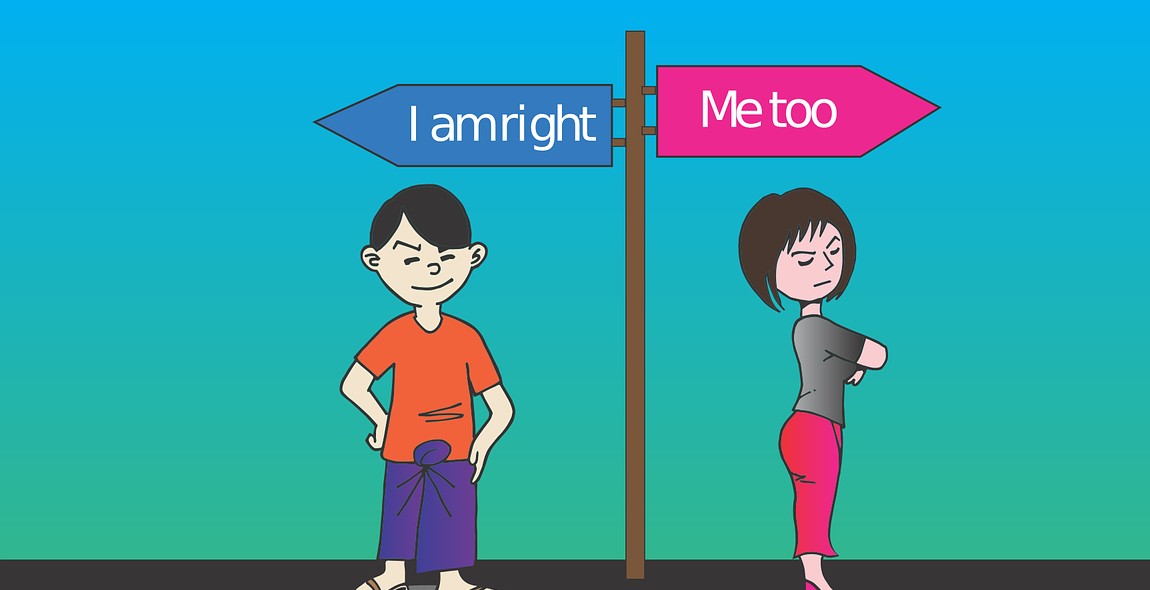The Art of Compromise in Love Relationships: Finding the Balance Between Giving and Receiving
As a love and relationships psychology guru, I have seen countless couples struggle with the concept of compromise. It can be difficult to find the balance between giving and receiving in a relationship, especially when emotions are involved. However, compromise is essential for a healthy and long-lasting relationship.
Personally, I have learned the importance of compromise through my own experiences. In my early relationships, I often struggled with finding a middle ground. I would either give too much of myself and lose my sense of self, or I would be too stubborn and refuse to budge on certain issues. It wasn’t until I found a partner who valued compromise as much as I did that I truly understood its significance.
In this article, I will share my insights on the art of compromise in love relationships. We will explore the definition of compromise, why it’s important, and how to effectively compromise with your partner. Whether you’re in a new relationship or have been together for years, these tips will help you find the balance between giving and receiving in your relationship.

Understanding Compromise in Love Relationships
Compromise is an essential element of any healthy love relationship. It involves finding a middle ground that both partners are happy with, even if it means sacrificing something that one person wants for the sake of the relationship.
Defining Compromise
Compromise is the act of making concessions to reach a mutually beneficial agreement. It is not about one person always giving in to the other, but rather finding a solution that works for both parties. Compromise requires communication, empathy, and a willingness to listen to each other’s perspectives.
Why is Compromise Important in Relationships?
Without compromise, relationships can become one-sided and unbalanced. When one person always gets their way, it can lead to resentment and conflict. On the other hand, when both partners are willing to compromise, it creates a sense of equality and respect in the relationship.
Compromise also helps couples navigate through differences and challenges. No two people are exactly alike, and disagreements are bound to happen. But when couples are willing to compromise, they can work through their differences and find common ground.
Ultimately, compromise is a key component of a successful love relationship. It allows both partners to feel heard and valued, and creates a foundation of trust and respect.
| Pros | Cons |
|---|---|
| Creates a sense of equality and respect in the relationship | Can be difficult to find a middle ground that both partners are happy with |
| Helps couples navigate through differences and challenges | One partner may feel like they are always giving in |
| Allows both partners to feel heard and valued | Can lead to resentment and conflict if one person always gets their way |

Barriers to Compromise
Compromise is essential in any relationship, especially when it comes to love relationships. However, there are several barriers that can prevent individuals from compromising, leading to conflicts and misunderstandings. Here are the three most common barriers to compromise:
Ego and Stubbornness
Ego and stubbornness are two significant barriers to compromise. When individuals are unwilling to put their ego aside, they tend to prioritize their own interests and needs over their partner’s. This behavior leads to a lack of willingness to compromise, which can cause misunderstandings and conflicts.
Fear of Losing Control
Fear of losing control is another significant barrier to compromise. When individuals fear losing control, they tend to hold onto their own opinions and beliefs, even when they may not be the best for the relationship. This behavior can be detrimental to the relationship, as it prevents individuals from seeing the other person’s perspective and finding common ground.
Lack of Communication
A lack of communication is another major barrier to compromise. When individuals do not communicate effectively, they tend to assume they know what their partner wants or needs, without actually asking them. This lack of communication can lead to misunderstandings and prevent individuals from finding common ground.
It is important to recognize these barriers to compromise and work towards overcoming them in any relationship. By putting ego and stubbornness aside, overcoming the fear of losing control, and improving communication, individuals can find common ground and compromise to strengthen their relationship.

Effective Communication Skills in Love Relationships
Effective communication is the cornerstone of a healthy and successful relationship. Without it, misunderstandings and conflicts are bound to arise. To avoid such situations, couples need to develop and hone their communication skills. Here are some essential communication skills that can help couples master the art of compromise in love relationships:
Active Listening
Active listening is a vital communication skill that involves paying attention to what your partner is saying and trying to understand their perspective. It requires you to be fully present in the moment and avoid distractions. When your partner is speaking, give them your undivided attention, maintain eye contact, and avoid interrupting them. Once they have finished speaking, paraphrase what they said to show that you understand their point of view. Active listening helps to build trust, respect, and empathy in a relationship.
I-Statements
I-Statements are a powerful communication tool that can help you express your feelings and needs without blaming or criticizing your partner. Instead of saying, “You never listen to me,” try saying, “I feel ignored when you don’t pay attention to what I’m saying.” I-Statements help to avoid defensiveness and encourage your partner to listen to your perspective.
Empathy
Empathy is the ability to put yourself in your partner’s shoes and understand their feelings and emotions. It requires you to be open-minded, non-judgmental, and compassionate. When your partner is upset, try to understand their emotions and validate their feelings. Instead of dismissing their concerns, show them that you care about their well-being. Empathy helps to build emotional intimacy and strengthen the bond between couples.
By mastering these communication skills, couples can improve their ability to compromise and resolve conflicts in a healthy and constructive way. Effective communication is the key to a happy and long-lasting relationship.

The Art of Compromising in Love Relationships
As a love and relationships psychology guru, I have come across many couples who struggle to find middle ground and compromise in their relationship. However, compromising is a crucial aspect of any successful relationship. It involves finding a balance between two individuals’ wants and needs, and it requires Give and Take from both parties. In this section, I will discuss the three essential components of compromising: Finding Middle Ground, Give and Take, and Creating Win-Win Solutions.
Finding Middle Ground
Compromising involves finding a middle ground that both parties can agree on. It means listening to each other’s needs and wants and finding a solution that works for both individuals. For example, if one partner wants to go out for dinner, and the other wants to stay in, finding a middle ground could mean cooking dinner at home and having a romantic night in together.
Give and Take
Compromising requires Give and Take from both parties. It means that both individuals must be willing to make sacrifices to find a solution that works for both of them. One partner cannot always get their way, and the other must always give in. Both individuals must be willing to compromise and find a solution that works for both of them.
Creating Win-Win Solutions
Compromising involves creating Win-Win Solutions. It means finding a solution that benefits both individuals and makes them both happy. For example, if one partner wants to go on vacation and the other wants to save money, creating a Win-Win Solution could mean finding a budget-friendly vacation destination that both individuals can enjoy.
- Finding Middle Ground
- Give and Take
- Creating Win-Win Solutions
In conclusion, compromising is an essential aspect of any successful relationship. It involves finding a balance between two individuals’ wants and needs, and it requires Give and Take from both parties. By finding Middle Ground, giving and taking, and creating Win-Win Solutions, couples can strengthen their relationship and build a strong foundation for the future.

Benefits of Compromising in Relationships
Compromise is a crucial aspect of any successful relationship. It involves finding a middle ground where both partners can meet each other halfway. Here are some of the key benefits of compromising in relationships:
Strengthening the Relationship
Compromising strengthens the bond between partners. When both people in a relationship are willing to compromise, it shows that they value each other’s opinions and are willing to work together to find a solution that works for both of them. This can create a sense of closeness and intimacy that strengthens the relationship over time.
Fostering Trust and Respect
Compromising also fosters trust and respect between partners. When both people are willing to give a little and take a little, it shows that they trust each other to make decisions that are in the best interest of the relationship. This can also help to build respect, as both partners are willing to listen to each other’s needs and work together to find a solution.
Promoting Growth and Development
Compromising can also promote growth and development in both partners. When both people are willing to compromise, it opens up opportunities for personal growth and learning. It allows both partners to learn from each other’s perspectives and to develop new skills and ways of thinking that can benefit the relationship in the long run.
Overall, compromising is an essential component of a successful relationship. It can strengthen the bond between partners, foster trust and respect, and promote growth and development. By working together to find a middle ground, both partners can build a stronger, healthier relationship.

Conclusion
Compromise is a vital aspect of any love relationship. It involves the art of giving and taking, understanding, and respecting each other’s opinions and feelings. It is not about one person always getting their way, but about finding common ground and making decisions that benefit both partners.
Compromise requires effective communication, active listening, and a willingness to understand each other’s needs. It may not always be easy, but it is necessary for a healthy and long-lasting relationship. It is important to remember that compromising does not mean sacrificing your values or beliefs, but rather finding a middle ground that works for both partners.
As a love and relationships psychology guru with years of experience, I have seen firsthand the benefits of compromise in relationships. It can help prevent conflicts and misunderstandings, strengthen trust and respect, and improve overall relationship satisfaction.
Remember that compromise is a two-way street and both partners should be willing to make concessions for the sake of the relationship. It takes practice, patience, and understanding to master the art of compromise, but it is worth it in the end.
- Effective communication and active listening are essential for successful compromise
- Compromise is not about sacrificing your values or beliefs, but finding a middle ground that works for both partners
- Compromise can prevent conflicts and misunderstandings, strengthen trust and respect, and improve overall relationship satisfaction
- Compromise is a two-way street and both partners should be willing to make concessions for the sake of the relationship
Remember, compromise is not a sign of weakness but rather a sign of strength and maturity in a relationship. Embrace it, practice it, and watch your love relationship thrive.
